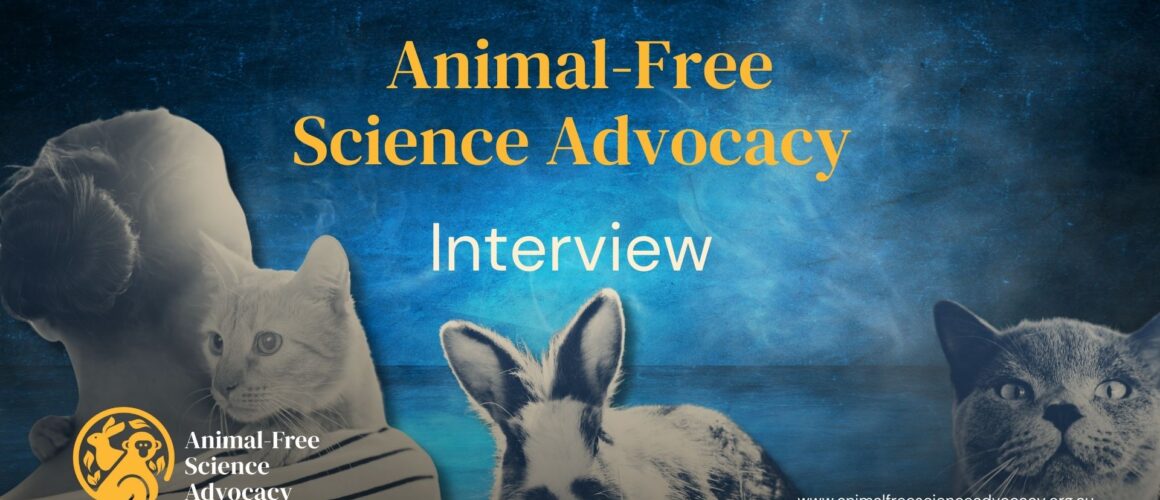 Australian bioethicist and veterinarian, Andrew Knight, is the Director of Animal Consultants International — which provides multidisciplinary expertise for animal advocacy campaigns. He is a Fellow of the Oxford Centre for Animal Ethics, holds a post-graduate Certificate in Animal Welfare Science, and is a Consultant Editor for the Journal of Animal Ethics. His book The Costs and Benefits of Animal Experiments was published by Palgrave Macmillan in 2011.
Australian bioethicist and veterinarian, Andrew Knight, is the Director of Animal Consultants International — which provides multidisciplinary expertise for animal advocacy campaigns. He is a Fellow of the Oxford Centre for Animal Ethics, holds a post-graduate Certificate in Animal Welfare Science, and is a Consultant Editor for the Journal of Animal Ethics. His book The Costs and Benefits of Animal Experiments was published by Palgrave Macmillan in 2011.
Andrew, your career began when you conscientiously objected to harming animals in your veterinary course at Murdoch University. Can you tell us briefly what reactions you initially received to your objection and some of the difficulties you faced in this major campaign?
I was the first student to seriously assert that the animal use within my veterinary course was unethical. I refused to participate in numerous laboratory and surgical classes. My instructors were not thrilled, and nor were most of my classmates — especially when I started to publicise the nature of that animal use, in major newspapers and on television. The hostility was palpable.
The students entering these highly competitive courses have gone to extreme lengths to get there — academically, and in some cases financially. The process is also selective for those who comply with the demands of academic authority figures. Very few dare to publicly adopt any position they feel may threaten their academic success and survival. With massive student debts and entire careers on the line, for people at the start of their professional lives, the stakes are very high.
The instructors have personal responsibility for laboratory classes in which hundreds of animals die over the years, and often also conduct their own invasive animal research.
Hence, both students and staff have a deep-seated need to believe that harming animals is necessary in veterinary education. Their entire moral justification for what they have done and continue to do collapses if it is true that humane teaching methods can effectively teach the necessary skills and knowledge. Hence, they can be very resistant to acknowledging the published educational evidence about this issue. However, that evidence overwhelmingly establishes the effectiveness of well-designed humane teaching methods, and thankfully, the tide has been starting to substantially change in recent years.
Your success in this area has paved the way for current veterinary students to object to animal use. Do you receive many requests from students wanting to follow your path and how successful are they generally?
When I was a veterinary student, I linked up with others in similar situations in veterinary schools across Australia, North America, and elsewhere. On www.HumaneLearning.info I published Learning Without Killing: A Guide to Conscientious Objection, which includes inspirational stories from veterinary, medical and other students around the world who were all running successful campaigns for humane teaching methods. I included various resources, including a set of steps for students to follow, likely to maximise students’ chances of success. Email lists have also been set up, such as one by InterNICHE (the International Network for Humane Education), allowing students who were previously isolated to come together to exchange ideas and support, which is extremely important.
I’m extremely proud that my fellow student campaigners in Australia have been and continue to be largely successful. By 2005 students had graduated from all four of the established Australian veterinary schools without harming any animals during their surgical training. Unfortunately, in every case the students had to overcome substantial opposition.
I continue to receive requests for advice and assistance from students internationally, from time to time. I’ve also placed a wealth of helpful resources and educational studies on www.HumaneLearning.info to assist them.
Most — although sadly not all — students waging these campaigns around the world are successful. But they must usually overcome significant hostility and opposition. However, almost all students will succeed in the end, if they are prepared to take all of the necessary steps. Most will also need to be very professional, patient, and strong.
Would you say that students who participate in terminal surgery labs are in conflict with their original intent to help animals and/or do you consider it risks them becoming desensitised?
Several studies have demonstrated that veterinary students become desensitised during the course of their studies. They become less aware of the hunger, pain, fear and boredom of dogs, cats and cows; are less likely to give painkillers; and less likely to undergo the normal development of moral reasoning ability observable in other students.
Veterinary and other students who experiment on animals, or conduct invasive and unnecessary surgical procedures on them, experience an enormous moral conflict. They are required to care for their animal subjects, whilst concurrently performing procedures that may seriously harm, and in some cases, kill them.
This can create great psychological stress. I strongly suspect that such desensitisation-related phenomena are aspects of a psychological coping mechanism these students develop in response to such stressors.
The implications for laboratory animal researchers, who engage in a far higher level of harmful animal use, and who are responsible for the welfare of far greater numbers of animals, are both obvious and deeply disturbing.
As a fully qualified veterinarian I understand you have branched out into other areas of animal protection, including comparing data obtained from animal experiments with alternative testing methodologies. Can you give us an overview of what conclusions were reached in these systematic reviews?
Systematic reviews provide ‘gold standard’ evidence about the contributions of animal experiments to human healthcare, because they examine large numbers of published animal experiments, selected randomly or systematically. Additionally, the ones I study are conducted to a standard sufficient to have achieved publication in peer-reviewed scientific journals, which is to say, a very rigorous standard.
At least 27 such reviews have now been published in the scientific literature, which I describe in my recent book The Costs and Benefits of Animal Experiments and elsewhere. The evidence they provide is remarkably consistent. In only two of 20 reviews located did the authors conclude that animal models were either significantly useful in contributing to the development of human clinical interventions or substantially consistent with clinical outcomes. Furthermore, one of these conclusions was contentious. Included were reviews examining the clinical utility of invasive chimpanzee experiments, of highly cited animal experiments published in leading scientific journals, and of experiments approved by ethics committees at least partly on the basis of specific claims that these animal experiments were likely to lead to concrete advances in human healthcare.
Seven additional reviews also failed to demonstrate reliable predictivity of human toxicities such as carcinogenicity and teratogenicity. Results in animal models were frequently equivocal or inconsistent with human outcomes.
When considering costs and benefits overall, one cannot reasonably conclude that the human benefits exceed the costs incurred by animals subjected to scientific procedures. On the contrary, the evidence indicates that actual human benefit is rarely — if ever — sufficient to justify such costs.
If both science and ethics dictate that animal experimentation is wrong, and yet millions of animals continue to be used in research every year, what do you think it will take to stop the practice?
Invasive animal research will continue as long as a majority of people believe it is necessary to advance human healthcare. Although the majority do not like to harm animals, no price is too high, they believe, if it will save human lives. Therefore, we must disseminate the truth about the utility of such research in advancing healthcare. The most robust evidence about this question that exists is the published body of large-scale systematic reviews of experimental utility. This provides a case that is rational, reasonable, robust, and entirely science-based.
It would also help if people became more aware of the rapidly developing field of non-animal alternatives. It was to raise awareness of all of these issues that I published The Costs and Benefits of Animal Experiments, as well as a number of short summary articles in UK veterinary journals, which are downloadable at www.AnimalExperiments.info. I do hope people will circulate these widely.
Additionally, we must ensure this information reaches key audiences such as scientists, policy makers, and life and health sciences undergraduates. I speak at laboratory animal science conferences, and meet politicians to discuss these issues, when I can. I’m also available for presentations.
